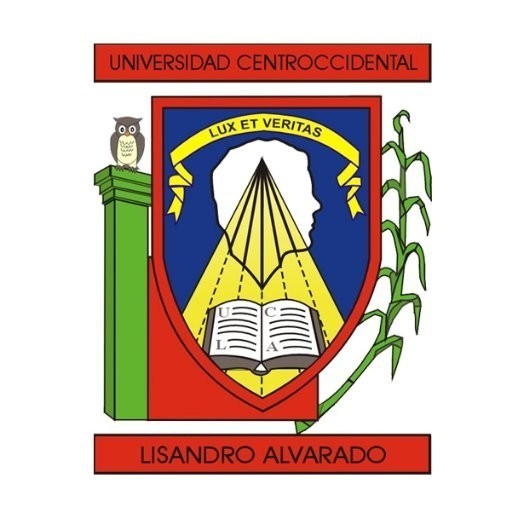Photos of university / #illinois1867
The Master of Science in Financial Engineering at the University of Illinois is a comprehensive and rigorous graduate program designed to equip students with the advanced skills and knowledge necessary to excel in the rapidly evolving field of financial technology and quantitative finance. This program combines principles from mathematics, statistics, computer science, and finance to prepare graduates for a variety of careers in finance, including risk management, investment banking, asset management, derivatives pricing, and financial technology innovation.
The curriculum offers a balanced mix of theoretical foundations and practical applications, enabling students to develop strong analytical, technical, and problem-solving skills. Core courses cover fundamental topics such as stochastic calculus, financial modeling, numerical methods, and programming. Specialized courses allow students to explore advanced areas like machine learning in finance, algorithmic trading, financial data analysis, and credit risk modeling. The program also emphasizes the use of industry-standard software tools and programming languages, including Python, R, and MATLAB, ensuring students gain hands-on experience with techniques used in the financial sector.
Students benefit from a combination of lectures, case studies, and project-based learning, often collaborating with industry partners to solve real-world problems. The program also provides opportunities for internships, research projects, and networking events that connect students with leading companies and professionals in the financial industry. Faculty members are experts in their fields, many of whom have extensive experience in both academia and the finance industry, providing students with mentorship and insights into current industry practices and emerging trends.
Upon graduation, students are well-prepared for high-level roles in financial institutions, hedge funds, trading firms, and financial technology startups. The program's strong focus on quantitative analysis, computational skills, and financial theory makes it an ideal choice for individuals aiming to pursue careers that require sophisticated mathematical and technical expertise. The University of Illinois’s location and its extensive alumni network further enhance employment prospects and professional development for program graduates. Whether students are seeking to deepen their understanding of financial engineering principles or to launch innovative solutions in finance, this program offers an excellent foundation for a successful career in the financial sector.
The Master of Science in Financial Engineering at the University of Illinois is a comprehensive program designed to equip students with the advanced quantitative skills and practical knowledge necessary to excel in the dynamic field of finance. This rigorous curriculum combines rigorous coursework in applied mathematics, statistics, and computer programming with critical financial theory, providing a solid foundation for careers in risk management, investment banking, quantitative trading, and financial technology.
Throughout the program, students engage with core topics such as stochastic processes, numerical methods, financial modeling, derivatives, fixed income securities, and portfolio optimization. The curriculum emphasizes the application of these theories to real-world problems, preparing graduates to develop innovative solutions in complex financial markets. The program also offers specialized electives in areas like machine learning for finance, financial data analysis, and algorithmic trading, allowing students to tailor their education towards their specific career interests.
In addition to classroom learning, students benefit from hands-on experience through project work, internships, and collaborations with industry partners. The program fosters close interaction with faculty who are recognized experts in their fields, facilitating mentorship and research opportunities. Students also have access to state-of-the-art computer labs and financial data resources, ensuring they are well-versed in the latest technological tools used in the industry.
Graduates of the Master of Science in Financial Engineering are well-positioned for high-level careers in financial institutions, hedge funds, asset management firms, and FinTech companies. The program’s strong focus on quantitative analysis, financial theory, and technological proficiency makes it a leading choice for aspiring financial engineers looking to make an impact in the modern financial landscape.
The Bachelor of Science in Financial Engineering at the University of Illinois requires completing a comprehensive curriculum designed to prepare students for careers in finance, risk management, and quantitative analysis. Students must fulfill university general education requirements, including courses in writing, social sciences, humanities, and natural sciences, to develop a well-rounded academic foundation.
The major coursework emphasizes core topics such as probability and statistics, computer programming, financial mathematics, stochastic processes, quantitative risk management, and computational finance. Students are expected to complete foundational courses in calculus, linear algebra, and differential equations to support advanced analytical studies. Programming skills are developed through courses in languages such as Python, R, and C++, enabling students to build and implement models for pricing, hedging, and managing financial risk.
A key component of the program is the integration of theory and practice, achieved through project-based courses and internships. Students are encouraged to participate in real-world financial data analysis, simulation studies, and algorithmic trading projects to enhance their practical skills. Elective courses allow students to specialize further in areas like derivatives modeling, financial machine learning, or financial data analytics, aligning their education with industry needs.
To complete their degree, students must undertake a capstone project or an independent study that demonstrates mastery of quantitative methods applied to financial problems. This project involves research, data analysis, modeling, and presentation components, culminating in a comprehensive report. Additionally, students are advised to participate in extracurricular activities such as finance clubs, competitions, and networking events to build professional connections.
Throughout the program, students are expected to adhere to the university’s academic integrity policies and maintain the required GPA standards. Upon graduation, students will have acquired the analytical, computational, and financial knowledge necessary to succeed in fields such as investment banking, asset management, financial consulting, and quantitative trading. The curriculum is periodically reviewed and updated to reflect the latest trends and technologies in financial engineering, ensuring graduates are well-prepared for dynamic financial markets.
The University of Illinois offers an integrated approach to funding and financing studies within its Financial Engineering program. Students pursuing this degree are provided with comprehensive financial support options, including scholarships, assistantships, and institutional aid, designed to facilitate their academic journey and reduce financial burdens. The program encourages prospective students to explore various sources of funding, such as federal and state financial aid programs, private scholarships, and external grants, which can significantly offset educational expenses. Additionally, many students benefit from teaching and research assistantship opportunities offered by the university, which not only provide a stipend but also invaluable professional experience in the field of financial engineering. The university's financial aid office actively assists students in navigating the application processes for these opportunities, ensuring they are well-informed about deadlines, eligibility requirements, and documentation needed. Furthermore, the university promotes loan programs for eligible students, providing access to low-interest loans that help cover tuition fees and living costs during study periods. The program's cost structure is transparent, with detailed information available on tuition rates and additional fees, allowing students to plan their finances effectively. International students are also encouraged to seek external funding sources, including scholarships awarded by government agencies or private foundations, which can support their studies at the university. The university emphasizes a holistic approach to financing education, recognizing the importance of financial planning and management skills as part of the curriculum in preparing students for careers in financial engineering. Financial literacy workshops and counseling services are available to help students develop effective budgeting strategies and understand the financial implications of their educational investments. Overall, the University of Illinois provides a robust support system to ensure that students enrolled in the Financial Engineering program have access to necessary financial resources, enabling them to focus on their academic and professional development without undue financial stress.
The Master of Science in Financial Engineering at the University of Illinois is a rigorous graduate program designed to prepare students for careers in quantitative finance, risk management, and asset management. The program integrates advanced coursework in mathematics, finance, statistics, and computer science to equip students with the skills necessary to develop and implement sophisticated financial models. Students learn to analyze and manage complex financial instruments, understand market dynamics, and apply computational techniques to solve real-world problems in finance. The curriculum includes core courses such as stochastic processes, financial derivatives, econometrics, and computational methods, complemented by elective courses that allow students to specialize in areas like quantitative trading, financial risk management, or asset pricing. The program emphasizes practical skills through projects, case studies, and internships, fostering a blend of theoretical knowledge and applied expertise. Graduates of the program are well-prepared for roles in investment banks, hedge funds, asset management firms, and financial technology companies. The university offers strong support for research activity, with faculty involved in cutting-edge financial research, collaboration with industry practitioners, and opportunities for students to engage in internships and cooperative education positions. The faculty brings extensive experience from academia and the finance industry, providing mentorship and networking opportunities for students. The program's location within the University of Illinois provides access to a vibrant academic community and numerous resources in financial research and technology. Overall, the Master of Science in Financial Engineering aims to develop innovative problem-solvers capable of advancing financial practices and managing financial risks in a rapidly evolving industry climate.







